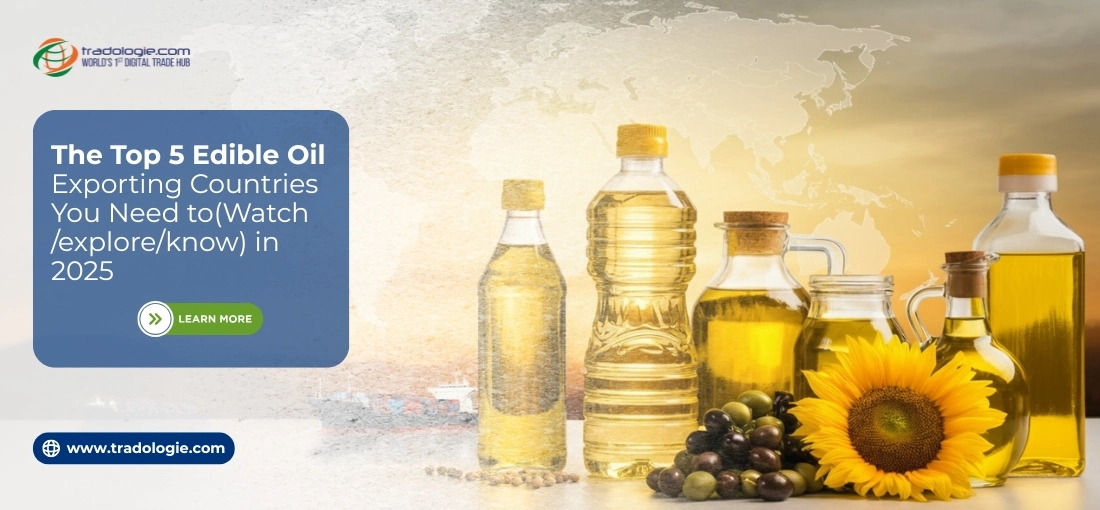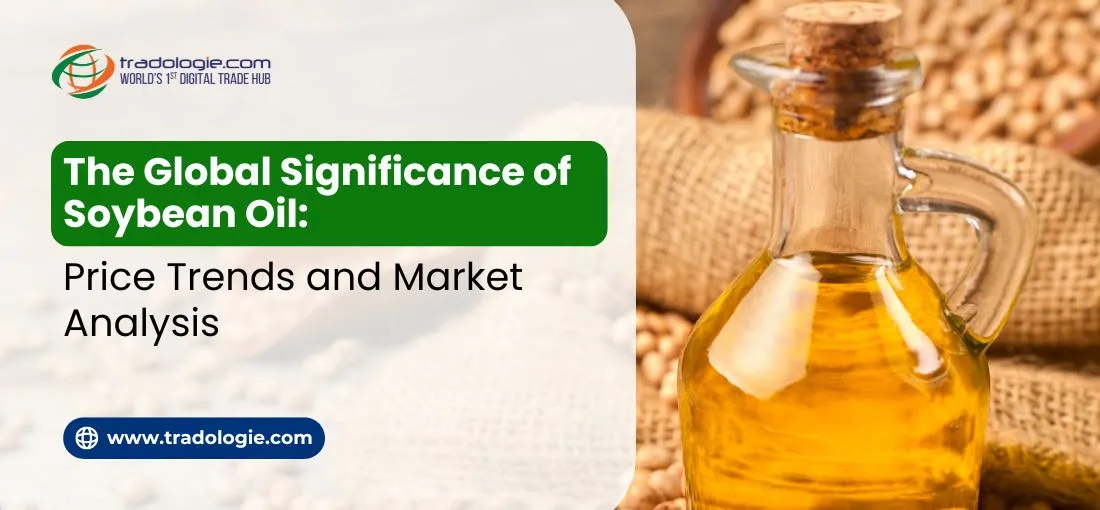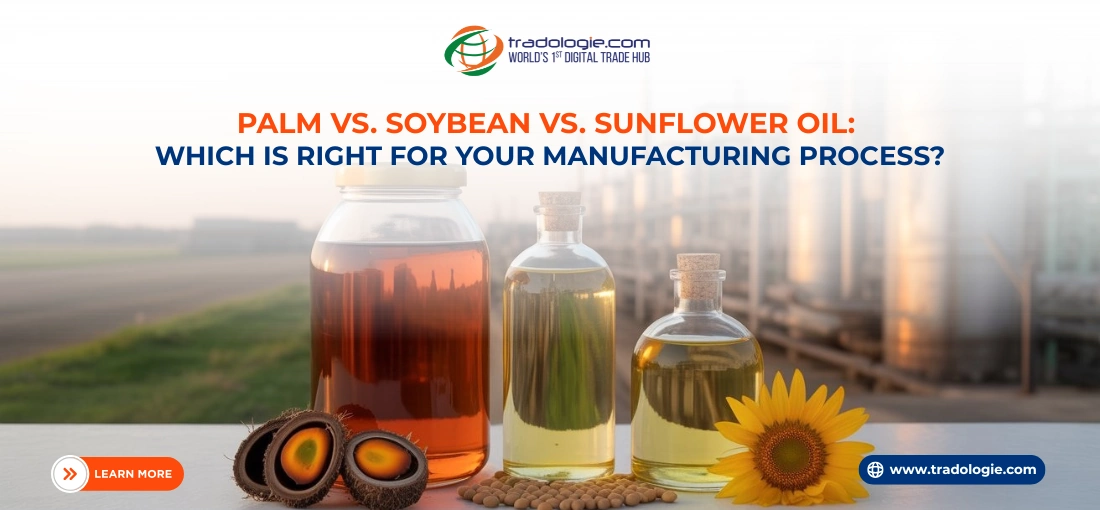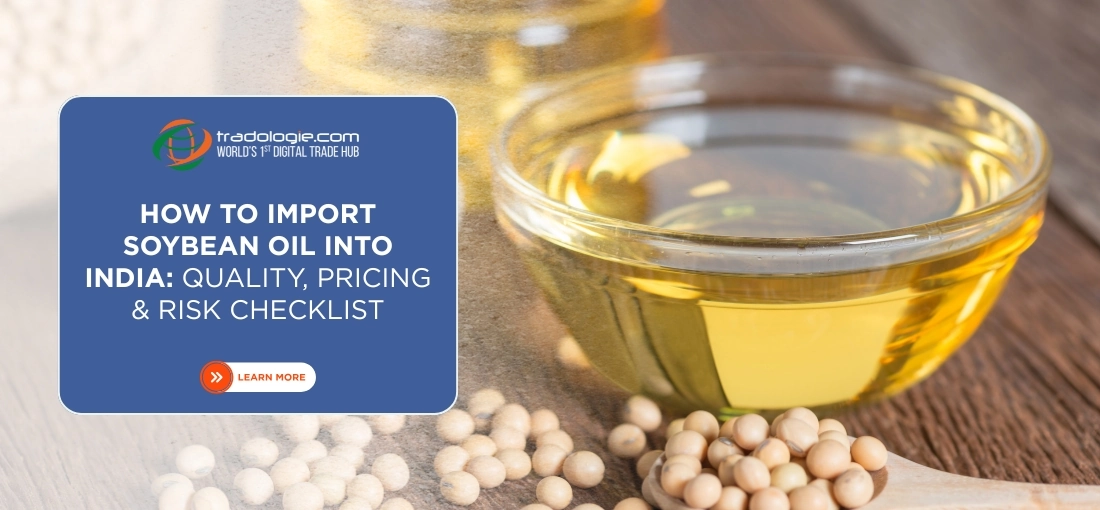The Top 5 Edible Oil Exporting Countries You Need to Explore in 2025
Key Highlights:
- Global Export Leaders: Some countries lead the global edible oil exports, supplying major markets around the world and supporting smooth edible oil import.
- Market Growth: The global edible oil trade is expected to grow steadily in 2025, driven by rising demand in Asia, the Middle East, and Africa as consumption habits change.
- Top Export Commodities: Palm oil, soybean oil, sunflower oil, and rapeseed oil are the main products exported globally, catering to the needs of households and industrial edible oil buyers.
- Procurement Channels: Buyers can source edible oils directly from producers, distributors, or B2B platforms like Tradologie, making procurement faster and more reliable.
- Smart Sourcing: Working with trusted exporters, monitoring global prices closely, and using multiple supply sources helps ensure smooth and cost-effective trade.
Introduction:
Edible oils are a daily necessity and are widely used in restaurants and food businesses. Some oils, like palm oil, are popular because they are cheap, while others, like olive oil, are aimed at premium buyers. To reach the right customers, edible oil traders need to know market trends, local preferences, and seasonal demand in a specific region.
With more people, urban growth, and changing eating habits, global demand for good-quality edible oils is increasing rapidly. In 2025, buyers looking to buy edible oil in bulk should know the top edible oil importing countries, their main products, and sourcing benefits.
Choosing the right supplier is important not just for fair pricing, but also for consistent quality, on-time delivery, and meeting international food safety rules
Top 5 Edible Oil Exporting Countries
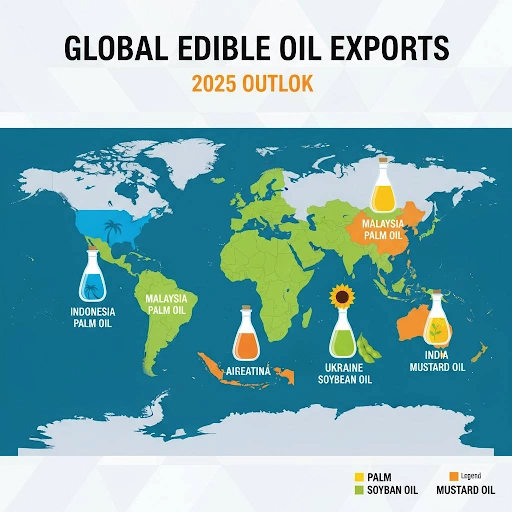
Indonesia
Indonesia is the world's biggest exporter of Palm Oil , supplying key markets in Asia, Europe, and Africa. Its large-scale production ensures a steady supply and keeps prices competitive.
- Leading exporter of palm oil, supplying Asia, Europe, and Africa.
- Export Volume: Approximately 20-26 million metric tons of crude palm oil in 2023.
- Known for large-scale plantations and competitive pricing.
- Many exporters offer sustainability certifications, making it easier for international buyers to meet eco-friendly standards.
Malaysia
Malaysia is an important palm oil supplier, known for reliable quality and following international standards. Its strong transport network makes shipping to global markets efficient.
- Major palm oil supplier with consistent quality standards.
- Approximately 12-16 million metric tons of crude palm oil in 2023.
- Offers sustainable and certified palm oil options for international buyers.
- Strong logistics infrastructure ensures smooth shipment to global markets.
Argentina
Argentina specializes in soybean and sunflower oil exports, providing options for buyers seeking alternatives to palm oil. Its refining capabilities ensure high-quality oils for various industries.
- Key exporter of soybean oil and sunflower oil.
- Export Volume: Approximately 3.1 million metric tons of soybean oil annually.
- Strategic for buyers looking to diversify beyond palm oil.
- Advanced refining capabilities help provide high-purity oils suitable for industrial use.
Ukraine
Ukraine is one of the main suppliers of sunflower oil in the world, offering good prices and easy access to European markets. Its well-planned harvests and modern storage system make sure exports are consistent and reliable for buyers around the world.
- Significant supplier of sunflower oil.
- Export Volume: Approximately 4.73 million metric tons of sunflower oil in the 2024/25 marketing year.
- Competitive pricing and access to European markets make it attractive for bulk imports.
- Seasonal harvest cycles and efficient storage facilities support steady export volumes.
India
India is a major exporter of refined edible oils, like soybean, groundnut, and mustard oil. Strong local processing ensures good quality, smooth operations, and on-time deliveries, meeting the needs of bulk buyers around the world.
- Exports refined oils including soybean, groundnut, and mustard oil.
- Export Volume: Approximately 0.55 million metric tons of oil meals, oilseeds, and minor oils in the 2023-24 fiscal year.
- Preferred for compliance with international quality certifications and fast shipping.
- Domestic production and processing capabilities allow flexibility for bulk buyers.
Global Edible Oil Market Trends

- Rising Consumption: Asia and Africa are driving global demand for oils due to fast population growth, more urban living, and changing eating habits.
- Sustainability Focus: Buyers now prefer oils that are certified, traceable, and responsibly sourced to meet strict international standards and growing consumer expectations.
- Price Volatility: Changes in oilseed crop production, bad weather, and new trade policies can greatly affect global prices and planning for purchases.
- Technological Advancements: Modern refining, packaging, cold storage, and transport methods help keep oils fresh, maintain quality, and make the supply chain more efficient.
Tips for Smart Edible Oil Sourcing
- Build long-term relationships with reliable exporters to get a steady supply of good-quality products and support consistent business growth.
- Source from multiple countries to reduce risks from crop shortages, seasonal changes, or sudden policy changes in any one market.
- Use B2B platforms like Tradologie.com for clear pricing, easy comparison of suppliers, bulk ordering, and smooth transactions
- Watch market trends, crop reports, and trade rules carefully to plan purchases well and make smart buying decisions.
- Look for certifications like ISO, HACCP, and RSPO for palm oil to meet global standards, improve product trust, and satisfy buyers.
Conclusion
In 2025, knowing the top edible oil exporters like Indonesia, Malaysia, Argentina, Ukraine, and India is important for buyers looking for quality oils for retail, wholesale, or industrial use. Smart sourcing, strong supplier connections, and understanding global market trends are key. These help ensure trading is efficient and reliable.
By planning well and working with trusted exporters, businesses can reduce risks and maintain a steady supply. This approach also allows them to take advantage of new opportunities in the international edible oil market.

